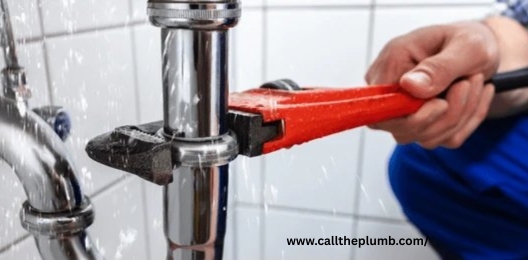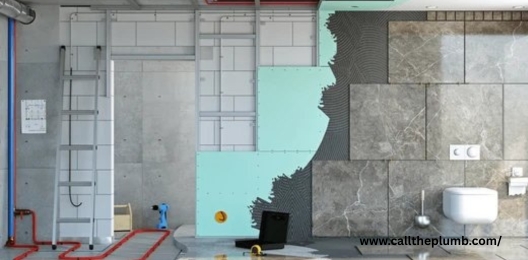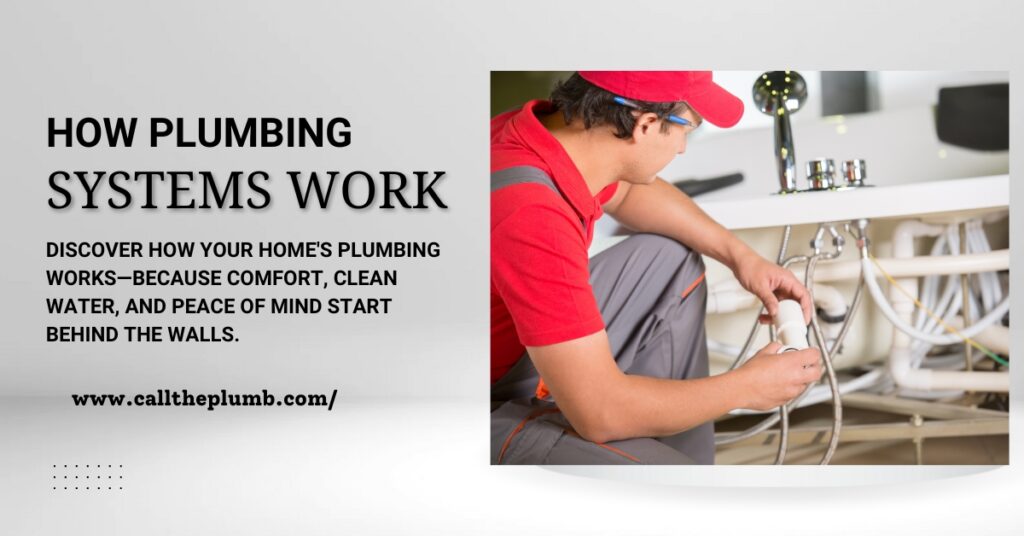People only worry about plumbing when something goes wrong. The water comes out straight and quickly when you turn on the faucet. It seems like things simply happen without any help. we know the home has several pipes, valves, and fittings that all work together; that’s why everything is going well in the home. So, I want to know what’s going on with your plumbing vent when no one is in the home.
What makes a Plumbing System Work perfectly?
A plumbing system in a house is meant to accomplish two simple tasks: bring clean water in and take out used water. These two subsystems co-exist but never merge, thanks to good design and stringent plumbing codes.
- Water Supply System: This part supplies clean, pressurized water from the well or city to your toilets, sinks, showers, and appliances.
Knowing how plumbing functions enables you to identify issues before they become big, have more control over your system, and save on repair costs.
The major parts of a Home’s Plumbing System
1. Main Water Line.
This is when water enters your home. It links to your city’s water supply or well, feeding the complete plumbing system.
2. Turn-Off Valves
These water switches, which are alongside to bathroom and kitchen units allow you turn-off individual components for plumbing problems.
3. Waterline pipes
Plumbing supply lines, which might be formed from plastic or metal piping, feed fresh water to bathroom and kitchen units. Most homeowner use PVC or ABS to create drain pipes, which carry waste water to a water disposal system.
4. Fixtures
Some of them are dishwashers, toilets, showerheads, faucets, and other appliances that require water.
5. Traps and vents
P-traps are curved pipes that go beneath sinks and hold water while keeping sewer gases out. Vents: Let air into drainpipes so that water may flow freely and not gurgle.
6. Water Heater
The heating tool heats up the tap water before delivering it to fixtures and washrooms. It’s essential for sanitation and convenience.
The purpose behind It’s Significant to be aware How Plumbing Systems Work
Household plumbing failures could turn serious quickly, moving from minor leaks to extensive leak and costly repairs. You may be better prepared to:
- Detect difficulties early.
- Talk to your plumber in a simple way.
- Do basic upkeep.
It’s also simple to make good decisions when you’re fixing up or improving your home.

What might go wrong? Problems with plumbing that happen a lot
Even plumbing systems that are carefully taken care of might have problems. Here are a few common examples:
- Mineral buildup or leaks in pipes are two common causes of low water pressure.
- Grease, hair, and other things that don’t belong in the drain may all block it.
- Pipes and faucets that leak waste water and make your utility costs go up.
- Every day, running toilets might waste hundreds of gallons of water.
- Problems with the water heater: From cold showers to strange sounds.
If you see any of these signs, you need to hire an emergency plumber near you right once to prevent further problems.
Advice on how to do preventive maintenance
You don’t need to be an expert to keep your system running. Below are some easy steps to keep your system running:
- Insulate any exposed pipes to prevent freezing.
- Do not flush anything other than toilet paper.
- Use baking soda and vinegar to maintain your drains clean on a regular basis.
- Look for leaks behind sinks and also behind the water heater.
- Schedule a yearly check-up with a qualified plumber.
By following simple steps, you can extend the lifespan of your system and avoid costly crises.
How plumbing works in homes today
Leak detectors, tankless water heaters, and water-saving taps and showers are some of the smart plumbing features that come with modern homes. People say that these devices will improve water quality better and extends its lifespan than older ones. Using enviromentally safe fittings and correcting broken fixtures can help you lower expense on your water and power bills. This is a smart way to save money and streamline plumbing efficiency at the same time.

The People Behind the Pipes
Plumbers do more than simply fix things. They plan, put in, and look after one of the most important Scots in your home. You are protected against overflows, polluted water, and other risky plumbing issues because of their work.
A skilled plumber will always maintain your plumbing system in excellent condition, from correcting things that go wrong to completing regular maintenance.
Regularly Raised Queries
1. What is the role the household piping at home serve?
A home piping network is made up of tubes, connection points, flow controls, and household units that act as one system to provide fresh water to your household and eliminate greywater. It includes both the mechanisms for getting water and getting rid of it.
2. How do plumbing systems operate in homes these days?
Water pressure is used to feed water into the plumbing system, and water flows out by gravity. A central supply line brings water indoors, and it goes to bathroom and kitchen units before discharges into sewer lines that are attached to underground waste systems. Vents and traps typically help with this.
3. Which are the most common household plumbing faults that arises in homes?
Some of them include faulty pipelines, backed-up pipes, damaged toilet system, weak water pressure, and a water heater failure. Most of the time, routine checks can avoid them from occurring, or I may contact a 24 7 plumber to fix them right away.
4. What should I do if I assume there might be a household water disruption?
If you observe odd sounds, smell something unusual, experience low-pressure stream, or detect Damp patches, stop the water source (if you can) and get plumbing specialist. Acting quickly might help you avoid pricey system restoration.
5. How frequently do I need to review my water system?
Experts advise a good plumbing checkup annually. By doing so, it avoids expensive emergency repairs by finding hidden leaks, corrosion, or wear and tear in the pipes early enough.
Gain knowledge extra insights about water systems.
Conclusion
You can now see how hard it is to take a hot shower, get clean water, or flush the toilet. It’s not only the pipes; it’s also the peace of mind that comes from knowing that competent workers will take care of the system and that it is safe.
Do you need assistance right now? If you need assistance, search for “emergency plumber near me.”
